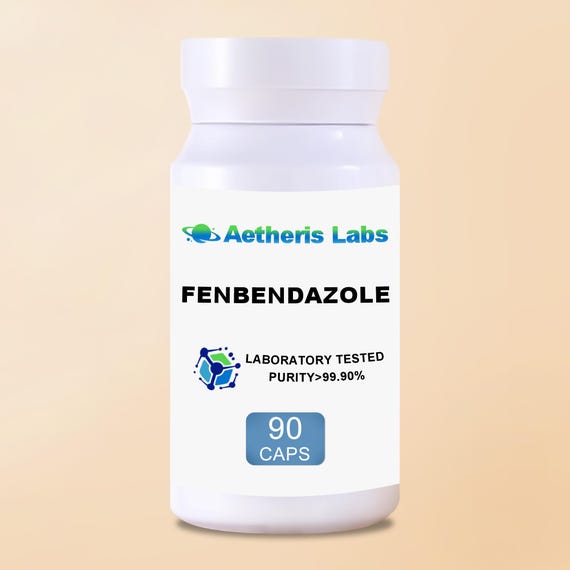fenbendazole: Everything You Should Know for Pet Owners
Wiki Article
Understanding the Perks and Uses of Fenbendazole in Veterinary Medication
Fenbendazole has actually developed itself as a key anthelmintic in veterinary medicine. Its ability to target numerous parasitical infections makes it a beneficial tool for vets. The medicine's mechanism interrupts important cellular processes in parasites, bring about effective therapy outcomes. Its safety account differs in between species, demanding mindful consideration in its use (222 mg). Recognizing these dynamics can drop light on fenbendazole's more comprehensive ramifications in vet treatment and ongoing research into its prospective beyond standard applicationsDevice of Activity of Fenbendazole

Typical Parasitic Infections Treated With Fenbendazole
A range of parasitic infections are effectively treated with fenbendazole, making it a versatile option in veterinary medication. This anthelmintic agent is particularly reliable against nematodes, including roundworms and hookworms, which commonly impact pets and felines. It is additionally utilized for the therapy of cestodes, such as tapeworms, giving a broad spectrum of action versus both types of intestinal parasites. In addition, fenbendazole is advantageous in taking care of infections triggered by protozoa, specifically Giardia, which can bring about intestinal distress in pets. Its effectiveness reaches treating particular lungworms in pooches and felines, addressing respiratory system health problems linked to these parasites. Overall, fenbendazole's capability to target multiple parasitical varieties makes it a useful tool in vet method, ensuring the health and wellness and health of pets influenced by these common infections.Security and Effectiveness in Different Animal Types
The safety and effectiveness of fenbendazole differ among different pet varieties, emphasizing the value of species-specific factors to consider in veterinary medication. In pooches, fenbendazole is generally well-tolerated and reliable against a series of stomach bloodsuckers, consisting of roundworms and hookworms. For felines, however, its use is much less common and may require cautious application due to prospective negative responses.In animals, such as livestock and lamb, fenbendazole demonstrates efficiency against different endoparasites, adding to enhanced health and efficiency. The pharmacokinetics and possible side results can differ significantly between species, requiring mindful assessment by vets.
Equines additionally respond favorably to fenbendazole, particularly for dealing with strongyles and ascarids, though dose and administration courses need to be tailored to their special physiology. Recognizing these differences is important for optimizing treatment end results and ensuring animal well-being across diverse varieties.
Management and Dose Standards
Proper management and dose guidelines are essential for optimizing the restorative effects of fenbendazole while minimizing prospective adverse effects. The dose usually differs depending on the varieties being dealt with, the particular problem, and the formulation of fenbendazole made use of. 222 mg. For pets and felines, a common dosage is 50 mg/kg body weight, provided as soon as daily for see this three consecutive days, however vets may adjust this based upon specific wellness assessmentsIt is essential to administer fenbendazole with food to improve absorption and lessen intestinal distress. The drug is available in different types, including granules and paste, enabling for versatile administration choices. Checking the animal's reaction during and after treatment is recommended to verify efficacy and security. Additionally, veterinary assistance is important to determine the proper period of therapy based upon the type of parasitical infection being attended to, assuring perfect results for the pet's wellness.
Future Perspectives and Study on Fenbendazole
Study on fenbendazole continues to develop, concentrating on its prospective applications beyond traditional antiparasitic usages. Recent studies have actually explored its effectiveness in dealing with different forms of cancer cells, especially in veterinary oncology. Initial data suggest that fenbendazole might inhibit the development of growth cells and enhance the effects of various other chemotherapeutic agents.Scientists are investigating its function in managing intestinal disorders in pets, highlighting its anti-inflammatory homes. The flexibility of fenbendazole for different varieties questions concerning its security accounts and suitable dosing regimens in varied populaces.
As passion expands, there is a requirement for extensive medical tests to develop evidence-based standards for these unique applications. Future research study might additionally examine the systems behind fenbendazole's results, potentially leading the way for innovative healing techniques in veterinary medication. The ongoing exploration of fenbendazole can greatly improve therapy alternatives for numerous veterinary problems.

Frequently Asked Concerns
Is Fenbendazole Safe for Pregnant Animals?
The safety and security of fenbendazole for expectant pets continues to be unclear. While some studies suggest marginal danger, vets normally advise care and frequently suggest against its use throughout maternity unless the benefits plainly exceed prospective dangers.Can Fenbendazole Be Utilized in Livestock?
Fenbendazole is commonly utilized in animals to deal with various parasitic infections. fenbendazole 222. Its effectiveness against gastrointestinal worms makes it a useful anthelmintic, adding to enhanced health and productivity in pets elevated for food and fiberWhat Are the Adverse Effects of Fenbendazole?

The side impacts of fenbendazole might consist of stomach disruptions, sleepiness, and allergies. In unusual situations, a more helpful hints lot more extreme responses can take place, demanding careful monitoring and appointment with a vet throughout therapy.
Just How Does Fenbendazole Contrast to Other Dewormers?
Fenbendazole provides broad-spectrum effectiveness against different parasites, usually contrasting positively to various other dewormers. Its distinct device targets different life great post to read stages, making it reliable, while generally providing a favorable safety profile compared to choices available on the marketplace.Can Fenbendazole Be Used for Treating Cancer Cells in Pets?
The capacity of fenbendazole in dealing with cancer in family pets has amassed interest. Initial researches suggest it might inhibit cancer cell development, but even more research study is necessary to confirm its effectiveness and safety and security in vet oncology.Report this wiki page